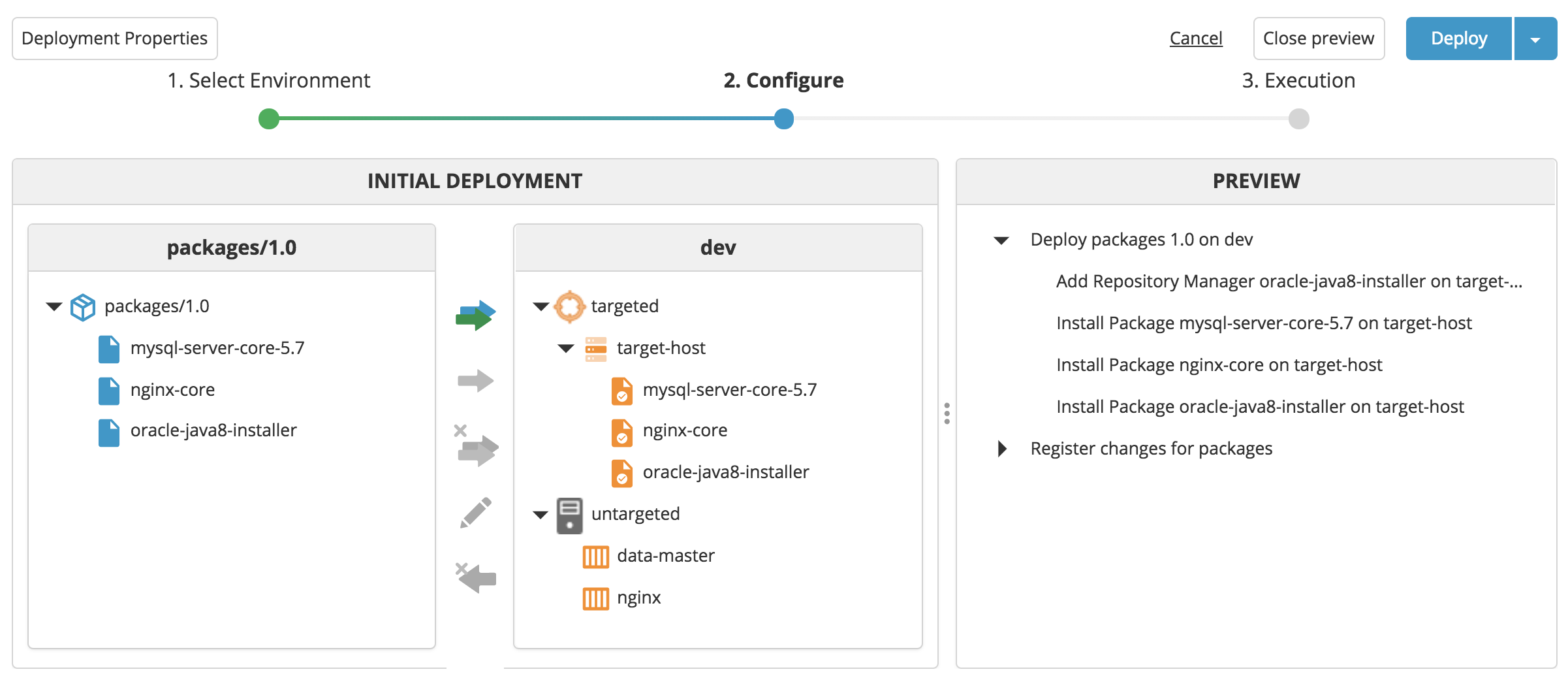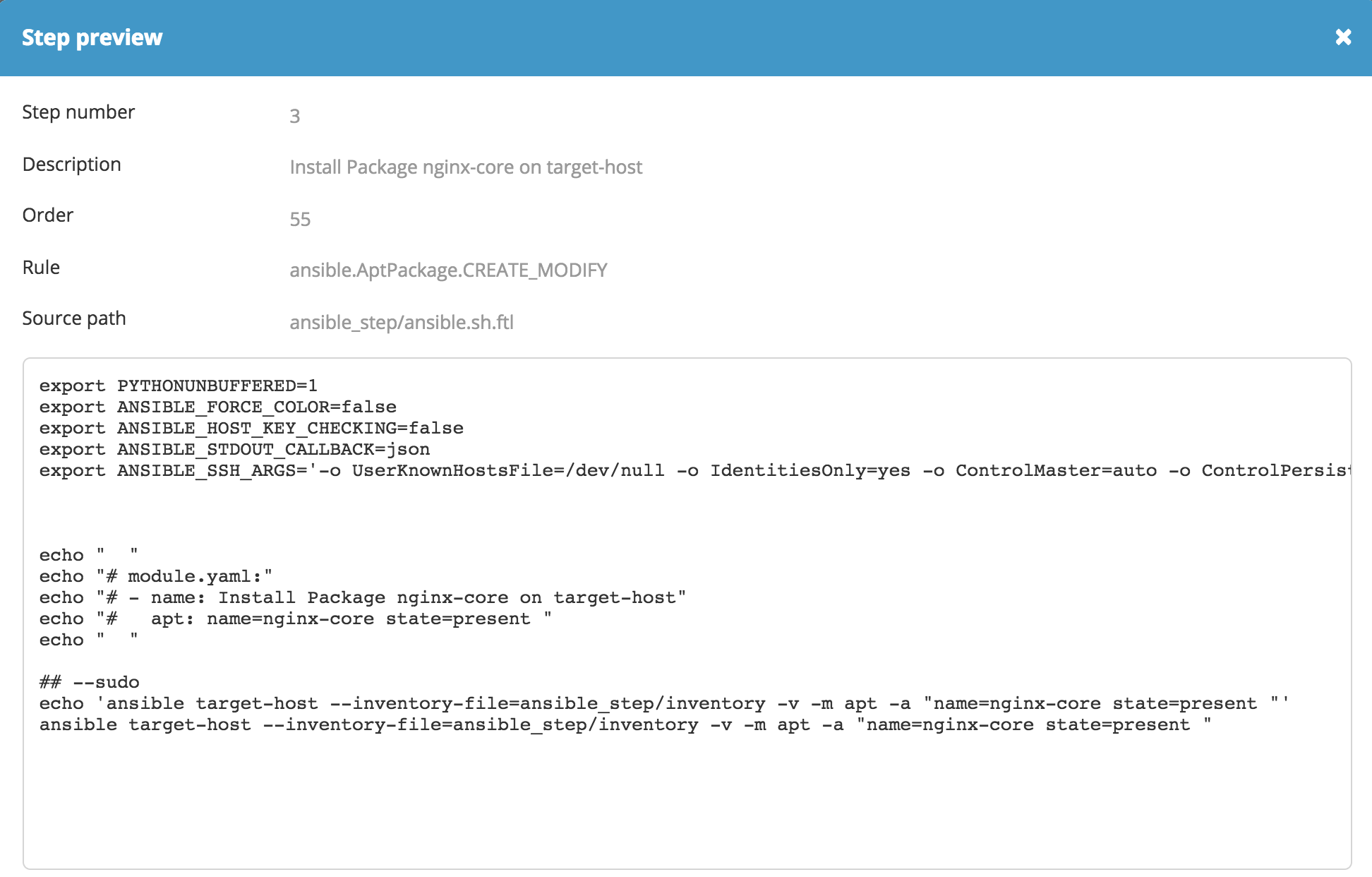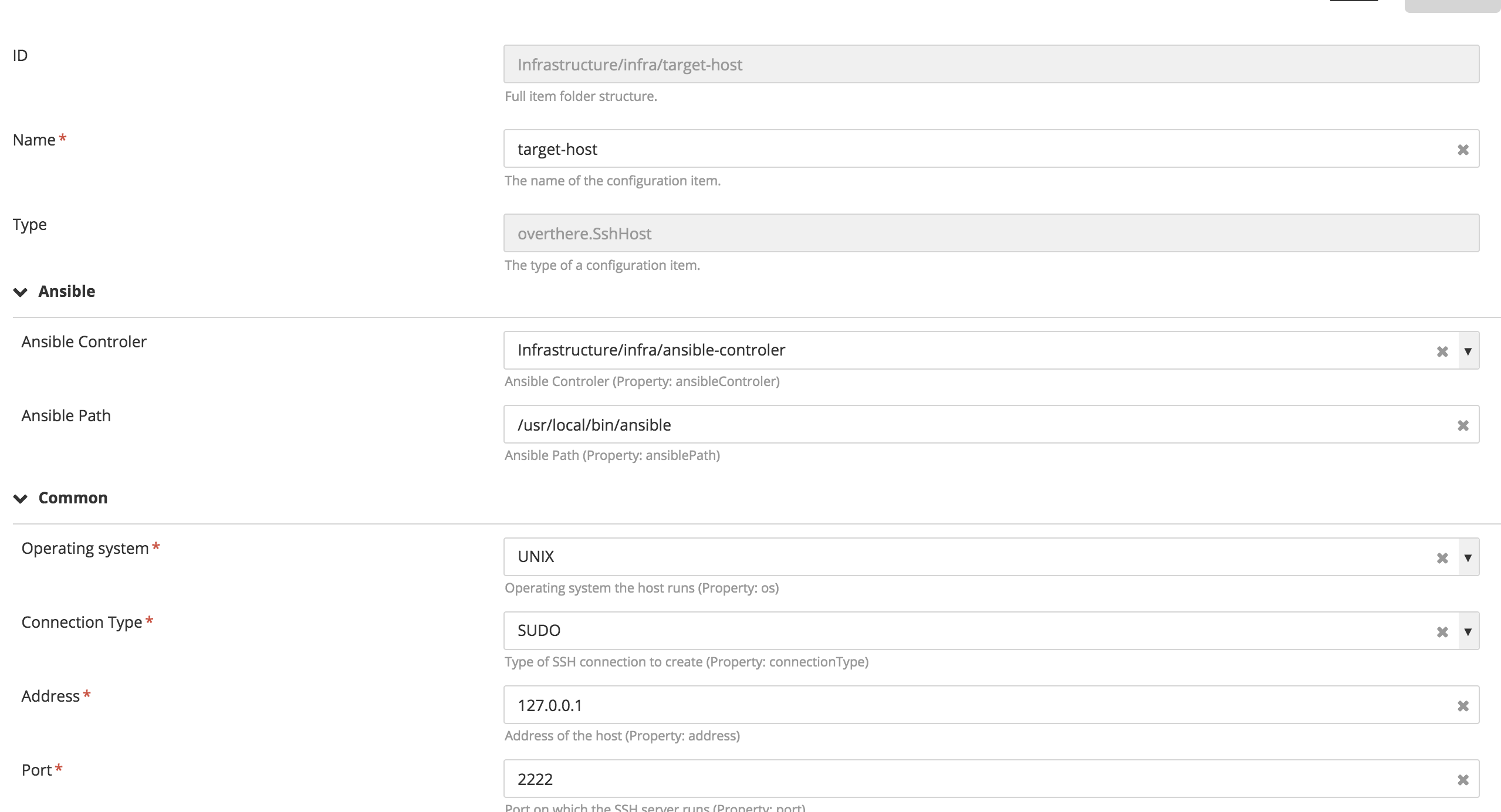This document describes the functionality provided by the XL Deploy Ansible Step plugin..
See the XL Deploy reference manual for background information on XL Deploy and deployment automation concepts.
The xld-ansible-step-plugin plugin is a XL Deploy plugin that adds capability to use call Ansible module and roles.
- XL Deploy requirements
- XL Deploy: version 9.5+
- Copy the latest JAR file from the releases page into the
XL_DEPLOY|RELEASE_SERVER/pluginsdirectory. - Restart the XL Deploy server.
This plugin provides a new & step that can be used by any rules.
This plugin provides a new deployed to deploy ansible roles.
| Parameter | Type | Description | Required |
|---|---|---|---|
| description | String | Step description | Yes |
| order | integer | Step order | Yes |
| modulename | String | Ansible Module Name | Yes |
| moduleargs | String | Ansible Module Arguments | Yes |
This XLDeploy type allow to define Ubuntu package to be deployed on a remote host.
<type type="ansible.AptPackage" extends="udm.BaseDeployed" deployable-type="ansible.AptPackageSpec" container-type="overthere.Host" description="Deploy a system package using ansible">
<generate-deployable type="ansible.AptPackageSpec" extends="udm.BaseDeployable"/>
<property name="kind" default="apt"/>
<property name="repository" required="false"/>
</type>
The associated rule is using the step using the apt Ansible Module
<rule name="ansible.AptPackage.CREATE_MODIFY" scope="deployed">
<conditions>
<type>ansible.AptPackage</type>
<operation>CREATE</operation>
<operation>MODIFY</operation>
</conditions>
<steps>
<ansible>
<description expression="true">"Install Package %s on %s" % (deployed.name, deployed.container.name)</description>
<order>55</order>
<modulename expression="true">deployed.kind</modulename>
<moduleargs expression="true">{'name':deployed.name, 'state':'present'}</moduleargs>
</ansible>
</steps>
</rule>
The rule to add a new apt ppa repository still using the apt_repository Ansible Module
<rule name="ansible.AptPackage.CREATE_MODIFY_if_repository" scope="deployed">
<conditions>
<type>ansible.AptPackage</type>
<operation>CREATE</operation>
<operation>MODIFY</operation>
<expression>deployed.repository is not None</expression>
</conditions>
<steps>
<ansible>
<description expression="true">"Add Repository Manager %s on %s" % (deployed.name, deployed.container.name)</description>
<order>52</order>
<modulename>apt_repository</modulename>
<moduleargs expression="true">{'repo':deployed.repository, 'state':'present'}</moduleargs>
</ansible>
</steps>
</rule>
| Parameter | Type | Description | Required |
|---|---|---|---|
| description | String | Step description | Yes |
| order | integer | Step order | Yes |
| roles | String | Ansible roles | Yes |
| variable | String | Ansible Variable to pass to the roles | Yes |
This plugin includes a new CI ansible.Roles allowing to apply a set of Ansible roles to overthere.Hosts.
if the Ansible roles includes a generation of YAML devops as code content, the plugin can apply the content to add the provisioned item to the current environment.
To trigger this feature, the includeDevOpsAsCodeTask should be the set to True and the roles should includes a template generation, you have an exemple here: and its usage




